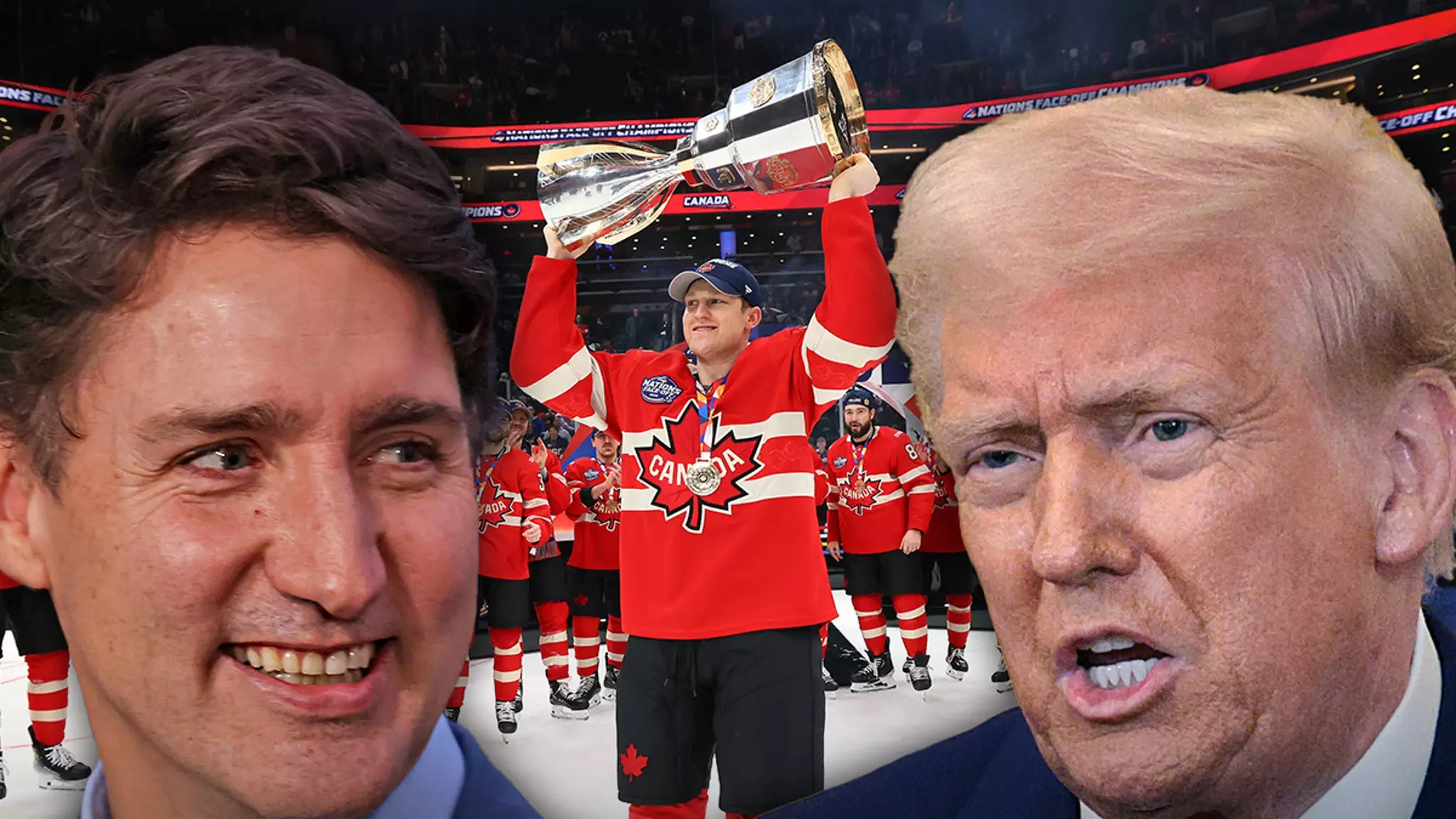In a tumultuous display of national pride, Canadian Prime Minister Justin Trudeau seized the opportunity to revel in his country’s recent ice hockey victory over the United States. The championship game of the 2025 Four Nations Face-Off, held in Boston, showcased intense competition and heightened emotions, reflecting not merely the spirit of sportsmanship but also the broader political tensions between the two neighboring nations. With a dramatic overtime goal from Connor McDavid, Canada reclaimed the trophy from its rival, igniting a wave of fervent nationalistic pride in the Great White North.
Following the thrilling victory, Trudeau wasted no time in taking to social media to share his jubilance, cleverly referencing former President Donald Trump’s past threats to annex Canada. His tweet, which humorously claimed, “You can’t take our country — and you can’t take our game,” exemplified the deep sentiments strung between sports and politics. This playful banter may have seemed innocuous, but it underscored a greater narrative: sports often serve as a platform for countries to wield their cultural and political identities, especially when rivalries brew.
The Four Nations Face-Off, although a relatively new event in the hockey world, turned out to be far more than just a prelude to the NHL playoffs. The games garnered significant viewership, primarily fueled by the escalating political rhetoric emanating from both sides of the border. The tense atmosphere was palpable during the opening match in Montreal, where American fans expressed their displeasure vocally, booing the anthem, while players quickly descended into chaos, leading to multiple fights within the first minute. Their Boston counterparts retaliated in a similar fashion, indicating that the sportsmanship was not merely about the game but included a landscape of national pride and rivalry.
Players themselves were acutely aware of the implications of their matches. Connor McDavid noted during the post-game interviews that the victory “means the world to our group,” highlighting the emotional investment of his team. Moreover, Nathan MacKinnon eloquently captured the zeitgeist when he remarked on the unique circumstances surrounding this rivalry. With increasing attention from media and fans alike, this tournament resonated beyond the ice rink, weaving itself into the broader fabric of North American relations.
As the dust settles on this electrifying tournament, the U.S. will have to bide its time for retaliation. With the Winter Olympics a year away, anticipation simmers for the next round of competition. As the two nations prepare for further clashes, one can only speculate on what emotional factors might play a role in these encounters—will the rivalry between Canada and the U.S. continue to ignite passionate exchanges, or will it transform into a more amicable competition? Only time will tell how the on-ice battles reflect the off-ice dynamics of these North American neighbors.
As sports and politics intertwine, fans engage not only with the scores but also with the identities and narratives that define two nations, a storyline that is as riveting as the games themselves.

